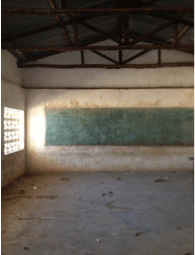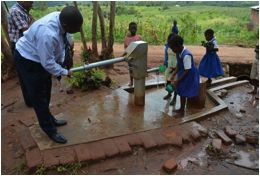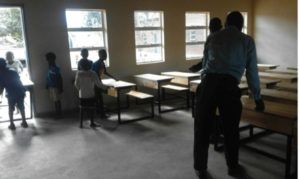The media documentation of the constant domestic struggle occurring in Malawi, Africa makes it no surprise that the United Nations ranks Malawi in the 20 least developed countries in the world. This plight, although felt throughout the country, is arguably felt more so in the rural villages of Malawi simply due to their remote nature. Malawi native and Catholic priest, Father Phillip Mbeta, befriended former senior partner at Spesia & Taylor Doug Spesia while Fr,. Mbeta was completing his doctoral studies at Illinois Benedictine University in Lisle, Illinois. After Doug’s death in 2010, John Spesia and Father Mbeta established a partnership between the Joliet Rotary Club and the Blantyre, Malawi, Rotary Club as a means to solve the many problems that plagued the rural African community – including a lack of clean drinking water. Another partnership with the Limbe, Malawi Rotary Club was forged in 2013. Through those efforts, four deep-wells were constructed and now provide a clean water source for hundreds of villagers in the Thyolo region of Malawi.
In 2015, John Spesia spearheaded yet another project in rural Malawi again through a partnership between the Joliet Rotary Club and the

Rotary Club of Limbe, Malawi. This time the project was designed not only to provide clean water, but also to address dilapidated schools in rural Malawi. On a trip to Malawi in 2014, Mr. Spesia saw for himself that classrooms consisted of poorly lit spaces with unkempt concrete floors, thus clearly impairing the students’ ability to learn and the teachers’ ability to convey knowledge.
The state of the housing provided to teachers only exacerbated problems as it was regarded as “deplorable” due to the impact recent storms had on the structures. Therefore, schools could not attract prospective teachers (who customarily live on-site so as to minimize the need for daily travel). Education in these rural schools was also affected by the water supply or lack thereof. In order to avoid consuming water from a contaminated supply, mothers and students are forced to travel long distances to obtain clean water. Those who consume contaminated water suffer from cholera and other bacterial conditions. The consequence is an increase in absenteeism.
In order to address these conditions, a partnership led by the Joliet and Limbe Rotary Clubs, along with a a grant from The Rotary Foundation financed a project to renovate schools/housing and drill clean water sources at two schools in rural Malawi. Through use of the Rotary Club funds and the Rotary Foundation’s
World Fund matching program, $98,665 was made available to confront these issues head on. The project sought to improve three schools

which include Padoko/Mwapazi Primary School, Malimba Primary School, and St. Joseph’s Centre Nursery School. Students’ ages range from 3-14 years old.
The project involved the following three objectives: Create reliable and clean water sources within close proximity to the schools, renovate classrooms so as to make them more conducive to learning, and renovate housing provided to teachers. In addressing the issue of clean water, deep wells were to be constructed in order to prevent contamination from human, animal, or chemical sources. This not only reduces absenteeism, but also ensures the health of surrounding villagers. Deep wells (60-90m deep) provide more protection for the water supply by reducing the likelihood of contamination. Also, their manual components reduce the need for maintenance and increase reliability allowing for a safe, reliable water supply within close proximity to the schools. Renovations needed to be done to both the classrooms and the teachers’ housing in order to provide a safe and adequate environment that is conducive to learning. The renovations included new concrete floors, paint, windows, drainage systems, and roofing. In addition, at one site a security fence was constructed to prevent theft and vandalism. Finally, 150 desks as well as other materials were provided to each school to ensure the adequacy of the supplies. Teachers were then provided lessons to improve the quality of their instruction derived from the methods of Doug Lemov, an authoritative figure in the field of teaching. All contracts were awarded to contractors whom employ local labor and all materials used were locally  manufactured, thus stimulating local economic growth.
manufactured, thus stimulating local economic growth.
Overall, more than 2,000 students within the locality will benefit from the completion of the project. In addition, more than 2,500 people live in surrounding villages, each of whom will now have access to a clean water supply, thus exemplifying the far-reaching impact of the project. More updates on the project’s progress to come.





